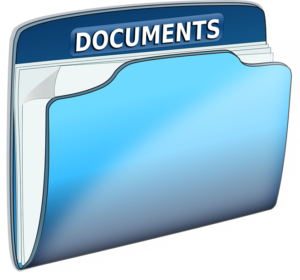
Record keeping for taxes can be frustrating and confusing. Don’t rely on LUCK! Here we bring you a few concepts we hope you find helpful regarding document retention and preservation.
TIME FRAME TO KEEP DOCUMENTS: First and foremost, you should consult your tax professional so that your document retention is tailored to your personal situation because tax professionals are the only ones who can provide tax advice! That said, as a general rule most people believe they should keep tax returns for at least 3 years after filing. Usually that’s because of the time limit to file an amended return and the time frame the IRS has to audit/assess additional taxes. However, because there are exceptions to the general 3-year-rule, this is NOT the best answer.
On our website we have a link to an article about someone who learned first-hand the value of keeping tax returns longer than 3 years, even when none of the exceptions applied at the time of filing. A man received an IRS request for a copy of his tax return from 5 years prior. Ironically, the IRS had records of his filings prior to that year and after, but was missing that one year. Here’s a quote from the article:
“You see, the three-year statute of limitations applies only when you filed an income tax return. If you didn’t file a tax return, the statute of limitations never started to run. More importantly, the statute of limitations applies only when you can prove you filed an income tax return. If the IRS doesn’t have a copy of your tax return, it’s going to assume you didn’t file one, and you have to prove you filed it.”
The author of the article did file his taxes for the year the IRS was requesting. Luckily, he had a copy that he was able to provide them. The moral of the story is that the burden to prove filing will ultimately fall on the taxpayer. Keep this in mind as you decide how many years of returns you want to store. This brings us to the next concept…
HOW AND WHERE TO STORE DOCUMENTS: Disasters in recent years have brought home the importance of having important documents stored in more than one place. Many are familiar with stories of Thomas Fire victims who lost their sole copies of paper documents when they lost their homes. This emphasizes the important concepts that you should have more than one copy of important documents, and copies should be stored independent of each other.
A good way to store more than one copy of an important document is to have both a hard copy and a scanned, digital copy. Digital copies should be stored so that they can be accessed independent of the physical computer (in case the computer is damaged or stolen). Make sure your scanned, digital copy is stored in a safe and secure manner that protects it from online intrusion.
DOCUMENT DISPOSAL: NEVER throw important documents in the regular trash! Documents with sensitive, personal information should be disposed of in a way that provides the best protection against data theft and identity theft. Secure shredding is an ideal way to dispose of hard copies.
LUCKY FOR YOU, BARLOWS ARE ON YOUR SIDE!
To serve our clients, Barlow Realty will be sponsoring a document shredding day at our office in May.
We are solidifying a day of the shredding event and then we will let you know.
[Article referred to and quoted above is by Bob Carlson written in 07/2018 on Forbes.com. A link to the full article.]
Links from IRS with Time suggestions
Link 1 – https://www.irs.gov/businesses/small-businesses-self-employed/how-long-should-i-keep-records
Link 2 – https://www.irs.gov/taxtopics/tc305